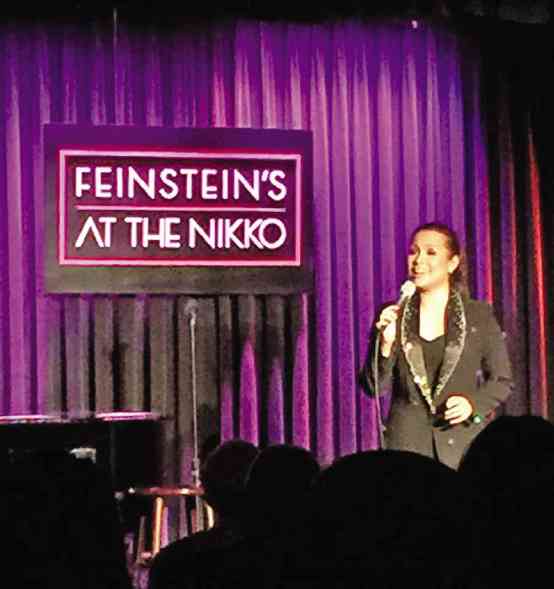SAN FRANCISCO—I have written about past cabaret stints at the Café Carlyle in New York, where I get up on stage with a few musicians and perform for a small audience in a very intimate setting. This past Easter weekend, I got to do the same at Feinstein’s at the Nikko in this cool city.
Feinstein’s is a fabulous cabaret room nestled in the Hotel Nikko San Francisco (222 Mason Street). It fits about 140 people for an evening of food, drink and lots of music.
Regular collaborator Victor Lirio and I put together a show that was a mix of standards (an intimate nightclub seems to be one of the more appropriate venues for performing this kind of music), pop music and, of course, plenty of musical theater. However, unlike Café Carlyle, my accompaniment was limited to a piano (Jeff Harris was the man in charge here).
My repertoire included mash-ups of “A Song for You” and “I Can’t Make You Love Me,” “I Dreamed a Dream” and “On My Own,” “The Song Is You” and “You and the Night and the Music,” and “On the Street Where You Live” and “He Touched Me”; plus renditions of “Mr. Bojangles,” “Back to Before,” “My Foolish Heart,” “I Could’ve Danced All Night,” “Maybe This Time,” and “Everybody Says Don’t.”
There is a challenge to performing with sparse accompaniment—no drum kit, synthesizers, rhythm, string, brass or woodwind sections, auto-tune, or compressors. All you have is a microphone, your voice, the piano, and speakers to amplify everything. In other words, you’re vocally stripped down, naked.
Strange comfort
Strangely enough, there is comfort in knowing that each performance falls on the shoulders of only three people—the vocalist, the pianist, and the tech guy in the back handling lights and sound. The fewer things I have to worry about, the more I can focus on the music, the lyrics, and the stories that accompany them.
With a small room such as this, it’s like doing a show in my living room and telling stories among friends. Sometimes the audience is more interactive and vocal; at others, more quiet and observant. Exchanges are as intimate as the venue, something that cannot be achieved in a larger space. There’s something to be said about having the first row literally within spitting distance from you.
I need not project as far or work as hard to sell a story or a song. That said, there is a vulnerability and exposure I can feel, because I’m speaking and singing to an audience that (in my mind at least) can see every single thing going on in my head and my heart. Things had better be as real as one can make it.
It’s liberating.
Yes, there is a script and a fixed running order, plus a slew of lyrics in my head. However, we never ever know what’s going to happen once the show begins. It could well be a rowdy night, or a more introspective one. And how I sing at any given night, although vocally consistent from one show to the next, is never ever the same.
Awkward start
I started doing cabaret shows in 2003. That first foray into this unique performance form was, sorry to say, very awkward. As time went on, and in the hands of wonderful directors and writers who knew this world far better than I ever will, things have gotten easier. Exposing oneself to a room full of people feels cathartic, therapeutic, and gives a very different kind of high compared to that achieved in an arena or a theater.
It’s a wonderful way to finish up my time here in the United States a couple of days before heading home. To paraphrase that famous song about this city by the bay, I just might’ve left a piece of my heart here.
